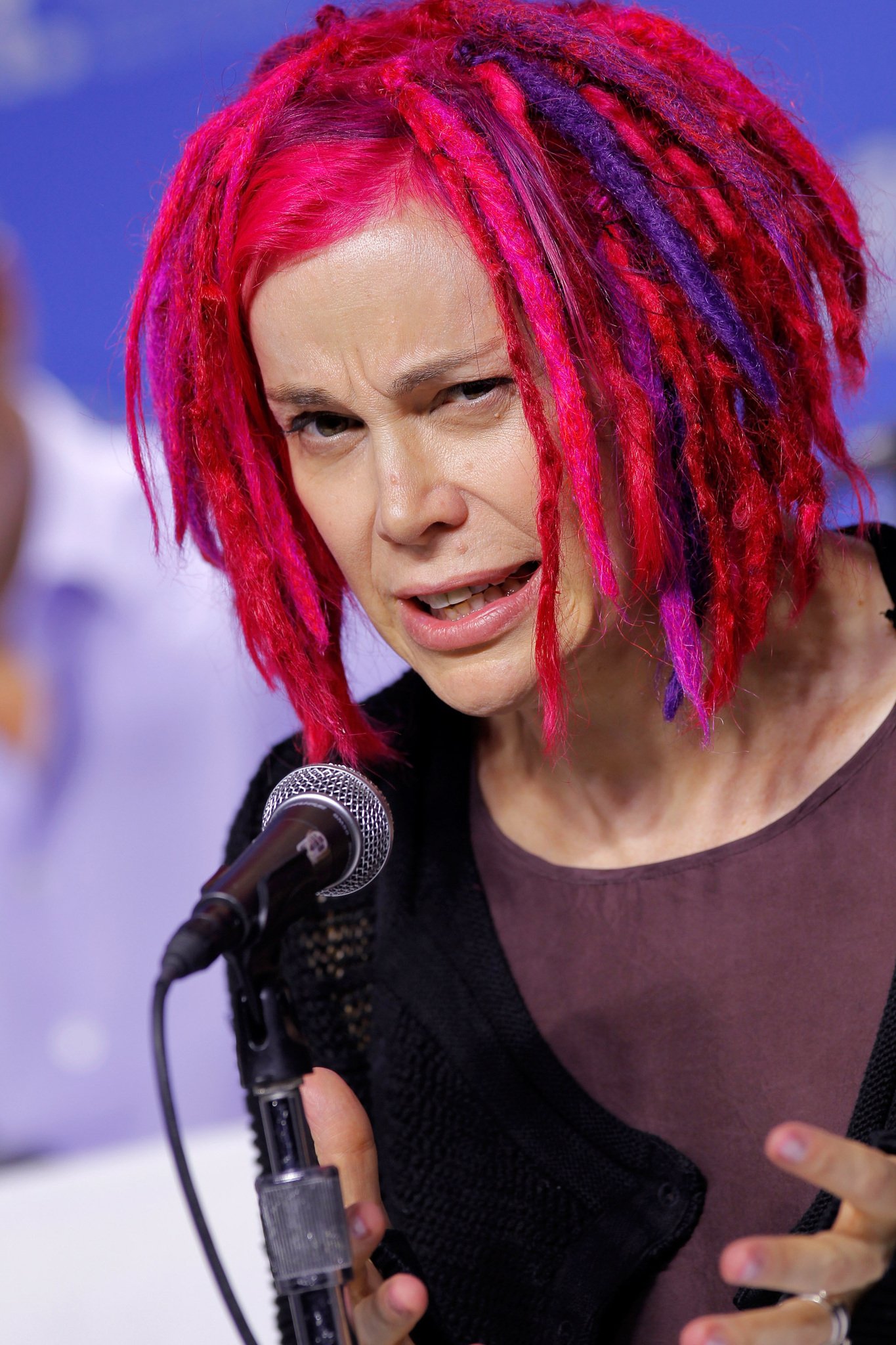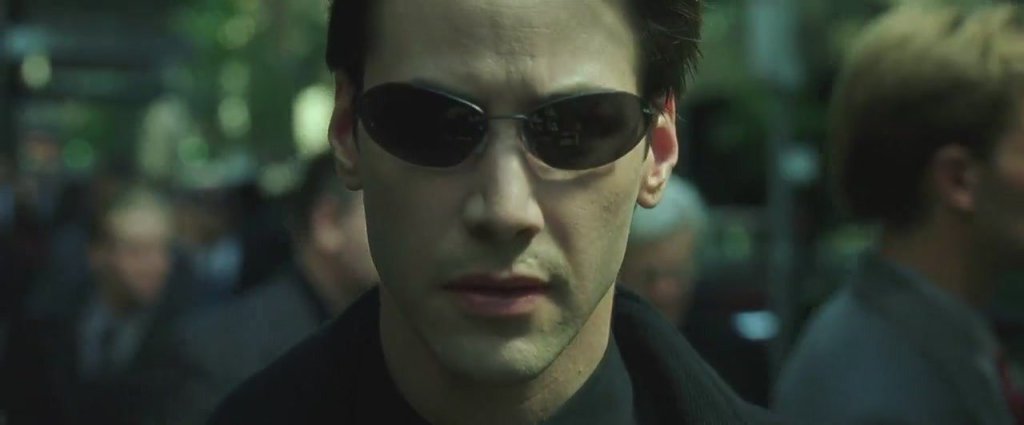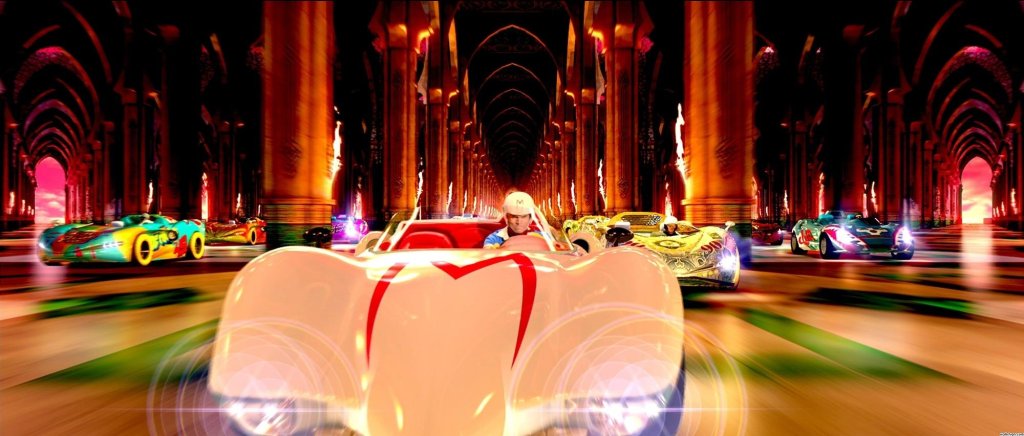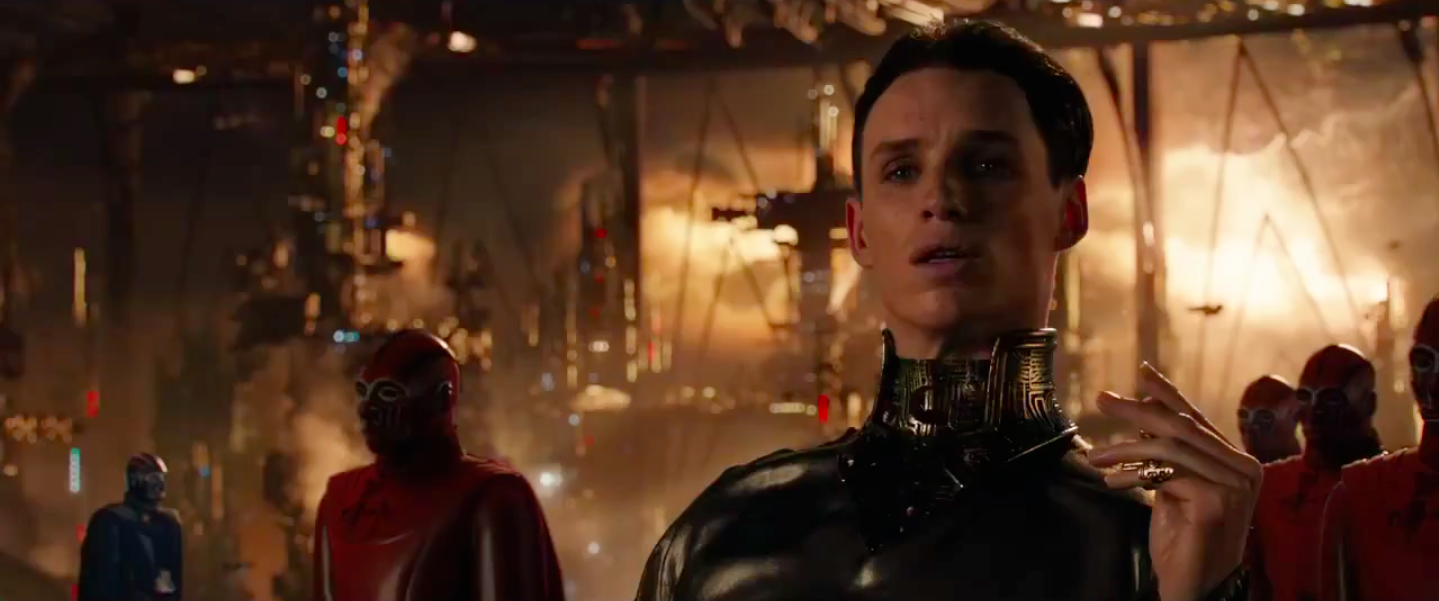On March 31st, 1999, the world took notice of two filmmaker siblings; siblings who, prior to that day, were mostly known among smaller indie circles for their 1996 neo-noir Bound. But everyone knew, on March 31st, who the Wachowskis were. And what better way to arrive than with The Matrix: one of the most influential action films to not just grace cinema but pop culture itself, which would go on to act as inspiration for and be referenced by countless works spanning mediums and genres. But The Matrix should not be their defining legacy, nor be viewed as their greatest, most unique film. For years the Wachowskis (Lana and Lilly) would always deliver a film that was ambitious narratively, visually and thematically. And though they didn’t always succeed in their endeavors, these films were always interesting, not only because of the clear love and passion poured into every frame and composition, but also because of the pure humanism of their works.

Lana Wachowski 
Lilly Wachowski
With every film of theirs, humanity was shown to be – though complex, multi-faceted and individualistic – ultimately a good and pure thing, and individuality itself is shown as the mark and ultimate expression of humanity’s greatness. Their protagonists and casts would differ in race, gender, sexuality and religion, but the Wachowskis boundless, joyous belief in their beauty pervaded as the fabric of every one of their films. And in almost every one of their films, these protagonists – characters that, in our world, divide themselves due to their countless differences – would unite against structures representative of the oppressive, heteronormative, white institutions in our world. The films spotlighted here are some of the best expression of their ambition, directorial ability, recurrent themes and their blatant, infectious and refreshing humanism.
NOTABLE WORKS
The Matrix (1999)

Of course, The Matrix must be recognized here, with its innovative directing, groundbreaking special effects, memorable (and often mimicked) action scenes and its ‘fight the system’ mentality. This was also the film to solidify Keanu Reeves as one of Hollywood’s biggest stars. The Wachowskis took influence from anime films like Akira and Ghost in the Shell, martial arts films, hacker culture, cyberpunk, philosophical beliefs and allegories like Kantian ethics and Plato’s Allegory of the Cave and represented then-growing skepticism and rejection of existing institutions and American conformity. The Matrix also has, for years, been seen as a trans narrative, with the character achieving who they’ve always been. In addition to this, originally, one of the supporting characters was supposed to be explicitly coded as trans before studio interference. In the last decade, the siblings themselves have come out as trans women. This is one of the most influential films of the last century, and a sign of their ever-present drive to deliver singular, expansive and original works of art.
Speed Racer (2008)

Speed Racer is undeserving of the derision it receives. The live-action adaptation of the classic anime series garnered mixed reviews and was a box office bomb. Though it is viewed as a visual overload of a film, with most locations being recreated visually rather than being hand-made, and candy-colored, blatantly cartoonish CGI, Speed Racer delivers some of the best visual experiences since CGI’s advent. In the film’s final race sequence, as Speed (Emile Hirsch) drives to the finish line, the Wachowskis create a kaleidoscopic, hypnotizing sequence that can’t be adequately described in words. The film, surprisingly, has some political statements – with the Racer family trying to maintain their small business while Royalton Industries strives to absorb it, and Royalton Industries’ inability to see anything else besides the financial side of the racing world. Speed Racer has been steadily gaining reevaluation in recent years, something that it very much deserves.
Cloud Atlas (2012)

When considering ‘unadaptable’ works of literature, David Mitchell’s 2004 novel Cloud Atlas is usually among those in thought. The work, which centers around six different stories that span centuries, continents, languages, genres and even writing styles, remains an example of what literature (and literature alone) can accomplish. So, in adapting it faithfully for the big screen, it’s near impossible to do the work justice. That’s why the Wachowskis (and co-director Tom Tykwer) are the perfect people to take on such a task, because at its core, Cloud Atlas concerns itself with the universality of the human experience, and how no matter how small or insignificant you deem yourself, you matter.
The film, like Speed Racer before it, premiered to poor box-office and critical reception, being on both ‘best’ and ‘worst of’ lists for 2012, which is not surprising, given the sentimentality of the film can easily be perceived as goofy. There are definite flaws with the film, the most egregious being the use of ‘yellowface’ when placing white actors to play the Asian reincarnations of past ones. But at its core, Cloud Atlas is one of the best representations of what the Wachowskis have focused on in their careers; their moving, ultimately optimistic view of human beings, coupled with the visual splendor they can accomplish with incredible ease.
Jupiter Ascending (2015)

Jupiter Ascending is the last of its kind: a big-budgeted sci-fi action epic not based on any pre-existing properties, but rather formulated in the minds of its director. These were in abundance in the ‘90s and early 2000s, and by no means were they fantastic or even good, but they had a personality, and a goal beyond acting as a basis for a potential franchise.
Jupiter Ascending is, admittedly, a mess, but it is certainly admirable. The film has a lot of traits familiar to those who’ve followed the Wachowskis for years: intricate world-building, stunning visuals, contemporary political themes, exhilarating action and an abundance of personality. Although, there are problems that are hard to overlook; the film’s protagonist, Jupiter (Mila Kunis), is not especially engaging, the prosthetics for Channing Tatum’s character are goofy to look at, and most of the acting is too serious for its own good – only Eddie Redmayne seems to understand the material he’s given, delivering a performance of such glee and campiness similar to Hugo Weaving in The Matrix trilogy.
The film deals with big themes such as capitalism and bureaucracy that aren’t equally given the spotlight they deserve, though that’s somewhat inevitable with such an ambitious work. While the film doesn’t pull off many of its ambitions, it reminds us of what we’ve lost. Even when the Wachowskis fail, it’s still a joy to watch.
Sense8 (2015-2018)

It’s almost surprising that it took so long for the Wachowskis to migrate over to television, since they’ve always dealt with weighty ideas and complicated narratives. Alongside J. Michael Straczynski (Babylon 5), they created Netflix’s Sense8. The premise, centering around these eight strangers who soon discover that they’re ‘sensates’, people who are emotionally and physically linked, encapsulates an idea recurring in the Wachowskis works: these characters, differing in race, gender, sexuality and religion, are connected on a molecular level, and these differences are what bind them together against an oppressive, conformist organization dedicated to destroying them.
Despite the binge release format making for a slow and uninteresting start to the series, Sense8 garnered a large and dedicated fandom, and managed to do this with the pure, unbridled optimism and self-love lacking in so many other shows. The series’ approach to gender and sex is not only refreshing, it’s infectious. Sense8 was cancelled after its second season finale, but fans drew a large enough response that Netflix gave its characters a real send-off with a two-hour series finale, allowing for a sense of closure. “Your love brought Sense8 back to life”, said Lana Wachowski of the Netflix renewal. Love. That’s what Sense8 radiated to and provoked in fans everywhere, and it’s what makes so many love the Wachowskis: the love in their work, their characters, their worlds.
The Wachowskis are our most empathetic, imaginative, daring directors today. Every project is a clear labor of love, never a cash grab, so it’s always heartening to see them be able to continue making their sometimes messy, over-the-top, exhilarating and always interesting blockbusters. In 2021, audiences will see the upcoming fourth Matrix film, solely directed by Lana Wachowski (Lilly is busy with her Showtime comedy series Work in Progress). When Jupiter Ascending failed financially and Sense8 was cancelled, it seemed that Hollywood would no longer allow this brilliant duo to continue making their ambitious films. So, thank goodness that this isn’t the case. We are lucky to have this duo create works that will no doubt provoke discussion, polarize audiences, influence creatives and make lasting impressions on moviegoers everywhere.

